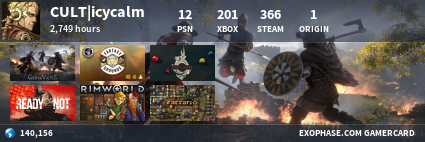
Need to investigate.
https://en.wikipedia.org/wiki/LitRPG
Wikipedia wrote:LitRPG
LitRPG, short for literary role-playing game, is a literary genre combining the conventions of computer RPGs with science-fiction and fantasy novels. The term was introduced in 2013. In LitRPG, games or game-like challenges form an essential part of the story, and visible RPG statistics (for example strength, intelligence, damage) are a significant part of the reading experience. This distinguishes the genre from novels that tie in with a game, like those set in the world of Dungeons & Dragons; books that are actual games, such as the choose-your-own-path Fighting Fantasy type of publication; or games that are literarily described, like MUDs and interactive fiction. Typically, the main character in a LitRPG novel is consciously interacting with the game or game-like world and attempting to progress within it.
History
The literary trope of getting inside a computer game is not new. Andre Norton's Quag Keep (1978) enters the world of the characters of a D&D game. Larry Niven and Steven Barnes's Dream Park (1981) has a setting of LARP-like games as a kind of reality TV in the future (2051). With the rise of MMORPGs in the 1990s came science fiction novels that utilised virtual game worlds for their plots. Early examples are Piers Anthony's 1993 Killobyte, Tad Williams's 1996–2004 tetralogy Otherland, Conor Kostick's 2004 Epic and Charles Stross's 2007 Halting State. In Taiwan, the first of Yu Wo's nine ½ Prince (½ 王子 Èrfēnzhīyī Wángzǐ) novels appeared, published in October 2004 by Ming Significant Cultural. In Japan, the genre has reached the mainstream with the release of the media phenomenon .hack//Sign in 2002 and Sword Art Online in 2009. Also of note is the Korean Legendary Moonlight Sculptor series with over 50 volumes.
While these novels and others were precursors to a more stat-heavy form of novel, which is LitRPG proper, a Russian publishing initiative identified the genre and gave it a name. The first Russian novel in this style appeared in 2012 at the Russian self-publishing website samizdat.ru, the novel Господство клана Неспящих (Clan Dominance: The Sleepless Ones) by Dem Mikhailov set in the fictional sword and sorcery game world of Valdira, printed by Leningrad Publishers later that year under the title Господство кланов (The Rule of the Clans) in the series Современный фантастический боевик (Modern Fantastic Action Novel) and translated into English as The Way of the Clan as a Kindle book in 2015. In 2013, EKSMO, a major Russian publishing house, started its multiple-author project entitled LitRPG. According to Magic Dome Books, a major translator of Russian LitRPG, the term "LitRPG" was coined in late 2013 during a brainstorming session between writer Vasily Mahanenko, EKSMO's science fiction editor Dmitry Malkin and fellow LitRPG series editor and author Alex Bobl [ru]. Since 2014, EKSMO has been running LitRPG competitions and publishing the winning stories.
GameLit
Many of the post-2014 writers in this field insist that depiction of a character's in-game progression must be part of the definition of LitRPG, leading to the emergence of the term GameLit to embrace stories set in a game universe but which do not necessarily embody leveling and skill raising. Some of the earliest examples are Chris Van Allsburg's 1981 Jumanji which is a children's book about a magical board game. and the Guardians of the Flame series (1983–2004) by Joel Rosenberg in which a group of college students are magically transported into a fantasy role-playing game.
Ernest Cline's 2011 novel Ready Player One, which depicts a virtual reality world called OASIS filled with arcade game references from the 1980s and 1990s, became an example of this new genre. Other examples include Marie Lu's 2017 novel Warcross, which is about an online bounty hunter in an internet game, and Louis Bulaong's 2020 book Escapist Dream, which tells the story of a virtual reality world where geeks can role-play and use the powers of their favorite comic book, anime, movie and video game characters.

